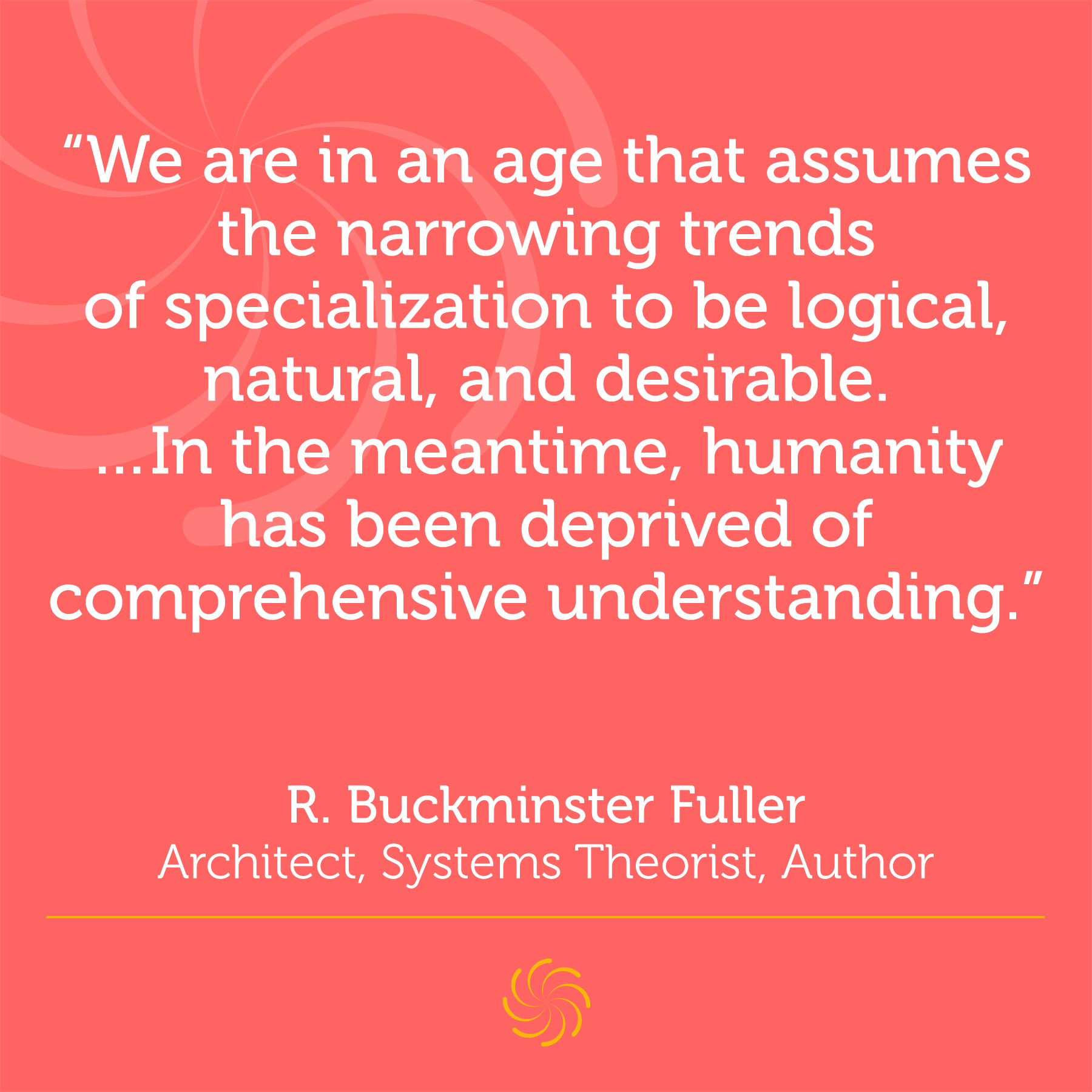We, human beings, have a strong conviction that we are rational. We believe once we have formed an opinion through learning and have had an opportunity to put that learning to use regularly, it must be true.
In psychological terms, rationality is really about two things: what we know of to be ‘true’ and what to do (Manktelow, 2004). In order for our beliefs to be rational then, they must be in agreement with evidence. In order for our actions to be rational they must be conducive to obtaining our goals. Human brain works on comparison and to master our day to day, we have to make reasonable assumptions amongst possibilities – like going to the bus stop to go to work, assuming there will come a bus to take us to work. We have to “fill in” blanks to have a structure, to make it through life.
So far, it all makes sense, right?
Yet, being ‘rational’ in our way of thought or action does not always make our belief or behavior right, does it? Not only this is a key area we find many leaders need to focus on; in the new context of business, having strong conviction about our rationalism may lead to missing critical business opportunities.
Let’s start at an individual level.
Did you know for example, when measured, we find out that human beings are not able to identify or select out our own voice cognitively, yet, some how, we are able to notice it through our skin conductance? In other words, did you know that our bodies can know something (hold information) that our minds don’t? Or, that we are very capable of making judgment connections that do not exist in reality? No joke! If, for example, we hear a random name (say randomly picked out of a phone book) and we have never seen it before in some irrelevant context and a few days after some one asks us about the name and whether the name belongs to someone famous, we say ‘yes’ – without even knowing!
Whether rational or irrational and despite all the good intentions we may have, we ALL have personal biases that often get in our way of perceiving reality.
So, What?
If we are interested in creating environments that offer meaning, inspiration, safety and joy to people; then, we need to think about the consequences of having personal bias play into our corporate experiences. And, there may be something in it for the business as well!
When I started working, for example, over a decade ago, my very first boss, Trish at (then) Deloitte & Touche told me “If you can observe well from one project to another, you’ll find the issues are pretty consistent from one organization to another.” The difference is today I find myself telling our consultants, “No matter what, do not make any assumptions”! Why? Because our world, our jobs, our experiences are no longer predictable in that way. All the theories of ‘work’ we used to have don’t serve us well anymore. For years, we operated with this demand based view of ‘having the right people, in the right place at the right time.’ We have said to ourselves if we know our requirements, fulfill them with good talent, keep people occupied, compensate well, etc., it will just work… In the 21st century, that sort of linear demand based view no longer works. Just think about it… It used to be okay to weed out resumes based on looks, age, origin, school, etc. back in 90s. Today, most of us would acknowledge those elements are completely irrelevant and the only reliable predictor we have for someone’s potential performance is their past accomplishments.
The world around is evolving faster than ever. If we take a step back and analyze human evolution, we see our cognition is evolving, too. Yet, some how, the pace of workplace evolution is unforgiving for many of us. In this transitionary period, we need more understanding to support one another.
It is a fact that we have people in the workplace, who feel at ‘odd’ about hiring people of different looks. It is a fact that we have people, who feel uncomfortable being managed by someone, who is younger. It is a fact that we have business leaders, who don’t want to outsource their most complex and innovation-seeking problems to people, who may not have had the opportunity to go to a ivy league school. The shift in demographics and the need to evolve our corporate cultures feel unnatural to many of us. Of course, it does…
It is an enormous task to put all that years of cognitive processing we collected aside. Yet, when we don’t invest in training of our minds and challenging our organizational processes that may lead to prejudice, we, as leaders of 21st century, become engaged in a moral dilemma as well as responsible for missing out on productivity and profitability.
Here is a great example of a study on AirBnB: Professors Benjamin Edelman and Michael Luca of Harvard Business School studied AirBnB to find out there is racial discrimination in the process of customer selection. They found that on Airbnb, requests from guests with black-sounding names were 16% less likely to be accepted than those from guests with white-sounding names.
What’s even more interesting for me to read and understand is that many of the home owners were not even always consciously prejudiced; rather, they were associating names and pictures of applicants with some recent stories they gathered through the media. YET, despite the intent the outcome of their behavior (in business terms) was that they were only 35% likely to fill the spot in comparison to a peer apartment. This is what was happening: One wants to rent an apartment but their unconscious bias got in the way and led one to lose money as an en result.
Airbnb, of course, isn’t the only platform touched by discrimination; the problem affects many digital platforms designed to offer service around freelance work, ride sharing, and even dog walking, etc.
Surely, you could say, well, it is legal for anyone to not accept someone in particular to their rental apartment. Everyone has a God given right to ‘be’ a particular way or to ‘act’ a particular way, that’s true. I’d then ask you to just recognize that attitude gives anyone one of us the right to say then “I don’t like your nose and therefore I don’t work with you.”
Alienation doesn’t seem bothersome until the alienating factor becomes something that innately belongs to one of us and/or on something we had no choice over – like our eye color, the place of birth, etc.
Another example: A 2004 Journal of System and Software paper by Magne Jorgensen and Karl Halvor Teigen and Kjetil Molokken examined the preferences of bosses for accurate versus overconfident project leaders and they concluded majority of managers appear to interpret accurate estimates as a signal of incompetence. Interestingly though, overconfidence not only leads to inaccurate results most of the time, it is considered a ‘social signaling bias‘ by many of us, psychologists.
I mentor many young colleagues, who are often very early in careers or just of our school and seeking early job opportunities. I can say with great confidence, in 99% of cases in Switzerland, where I currently reside, there is no response to their applications. None. Nada. Not even to say “We have not picked you.” This is not to pick on a specific country, instead, to highlight the brokenness of a global system.
We need to acknowledge the interconnected between the individual and organizational experience. The eye we turn away from corporate practices strip the dignity and joy out of people and steals opportunity away from our businesses.
I once heard another Harvard Business School professor I respect deeply, Mahzarin Banaji say “I am very forgiving of people, who make mistakes, but not of those, who turn a blind eye to process biases.” I strongly share her sentiment.
If you are a corporate leader or an HR professional finding yourself engage in conversations around 21st century talent management practices, here is my challenge to you:
Next time you are planning for a critical recruitment opportunity or a succession planning activity, try ‘blinding‘. Ask a group of random team mates to create blind biographies (of applicants or of potential next generation leaders) stripping the irrelevant information out. Review them with one group, make a final list of ‘selection’. Then, go back to your traditional way of decision making. Go through the exercise one more time and make a final list of ‘selection’. I guarantee majority of you will discover the names that come out of blinding exercise is not going to be the same as the traditional one. And if you discover the names are not overlapping, ask yourself why and what you can do about it, recognizing we are capable of change.
As we march into 21st century world of work, we need to work actively to create an environment of ‘understanding’ – first for ourselves, then for others and for our organizations.
No one is going to do it for us.






